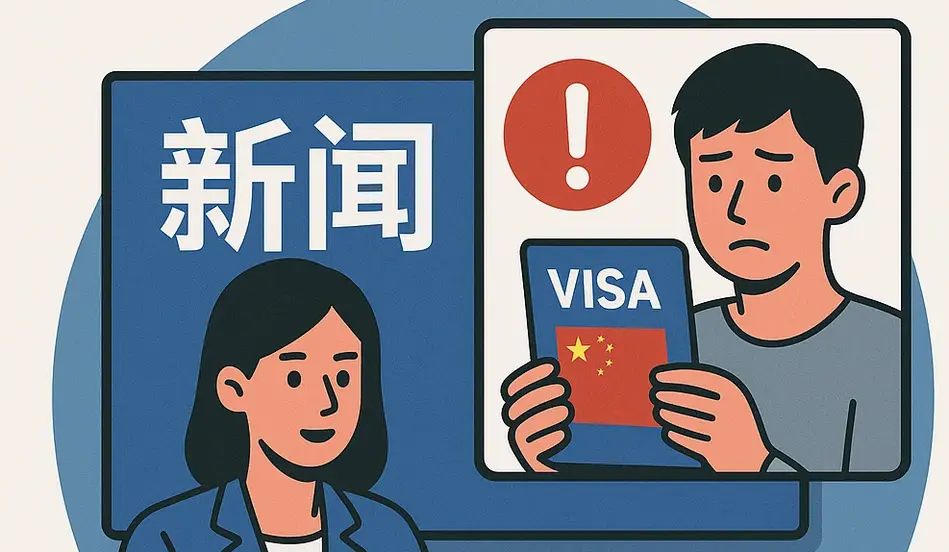China Tech Talent Visa is making headlines as China launches a new initiative to attract global technology professionals. This move comes at a time when the country is grappling with a surge in youth unemployment, raising questions and concerns among local graduates and job seekers. In this article, we’ll explore the details of the new visa, the public’s reaction, and what it means for China’s workforce and economy.
Understanding the China Tech Talent Visa
The Chinese government recently introduced the “K visa” program, designed to bring in highly skilled tech professionals from around the world. The goal is to fill critical gaps in the country’s technology and manufacturing sectors. However, the timing of this policy has sparked intense debate, especially as official youth unemployment rates have reached a two-year high, hovering around 19%.
What Is the K Visa?
The K visa is open to STEM graduates from renowned universities worldwide. Applicants need only a bachelor’s degree to qualify, making the program accessible to a broad pool of international talent. The government’s intention is clear: attract the best and brightest to help drive innovation and economic growth.
Why Now?
China’s rapid technological advancement has created a significant demand for skilled workers, particularly in key manufacturing and tech industries. According to official sources, there is a talent gap of about 30 million people in these sectors. The K visa is seen as a strategic move to address this shortfall and maintain China’s competitive edge on the global stage.
Public Reaction: Concerns and Criticism
Despite the government’s positive spin, the new visa program has not been universally welcomed. Many young Chinese graduates are worried about increased competition for jobs, especially as they face one of the toughest job markets in recent years.
Youth Unemployment at Record Highs
Nearly one in five young people in urban areas are currently unable to find work. This has led to widespread frustration and anxiety, particularly among recent graduates who feel that the new visa could make their job search even more challenging.
Social Media Backlash
On Chinese social media platforms, the response has been swift and vocal. Many users argue that the bachelor’s degree requirement is too low, given the large number of highly educated local graduates, including those with master’s degrees. There is also confusion about what qualifies as a “renowned university,” adding to the sense of uncertainty.
- Some users point out that the influx of foreign talent could lead to “education inflation,” where higher degrees become necessary just to compete for entry-level jobs.
- Others express concern that foreign nationals may receive preferential treatment, further disadvantaging local job seekers.
Education, Talent, and Opportunity
The debate over degree requirements highlights the challenges of balancing local talent with global competition. Employers can stand out by offering fair, transparent hiring practices that value skills, experience, and potential. Post your job on WhatJobs today and connect with candidates eager to prove their value in a competitive market.
Post a Job Free for 30 Days →Language and Fairness Issues
Another point of contention is the perceived advantage that foreign applicants may have due to their English language skills. Many believe this could give them a leg up over local graduates, who may not have the same level of proficiency.
Government Response and Official Messaging
In response to the growing criticism, Chinese authorities have attempted to reassure the public. The Ministry of Foreign Affairs has promised to release more information about the K visa through embassies and consulates. Meanwhile, state media outlets like The People’s Daily have published editorials defending the policy.
Key Points from Official Statements
- The government emphasizes that attracting foreign talent is essential for national success in the modern world.
- Officials argue that China has enough capacity to absorb both local and international talent.
- They highlight the urgent need to fill talent gaps in critical sectors, framing the visa as a solution to a pressing economic challenge.
However, critics note that these statements often sidestep the core issue of youth unemployment, leaving many questions unanswered.
Unresolved Questions and Ongoing Debate
As of now, the K visa application page does not list the new category, despite its supposed availability from October. This has led to speculation about possible delays or last-minute adjustments to the program.
What’s Next for China’s Job Market?
The introduction of the China Tech Talent Visa marks a significant shift in the country’s approach to workforce development. While the policy aims to address real talent shortages, it also highlights deeper structural issues within the Chinese job market.
- Will the influx of foreign tech professionals help drive innovation, or will it exacerbate existing employment challenges for local graduates?
- How will the government balance the need for global talent with the concerns of its own citizens?
- What measures will be put in place to ensure fair competition and equal opportunities for all job seekers?
Looking Ahead
The coming months will be critical in determining the impact of the China Tech Talent Visa. As more details emerge and the program is rolled out, both supporters and critics will be watching closely to see how it shapes the future of China’s workforce.
Frequently Asked Questions (FAQ)
What is the China Tech Talent Visa and who can apply?
The China Tech Talent Visa is a new program aimed at attracting global technology professionals to China. Anyone with a bachelor’s degree from a recognized university, especially in STEM fields, can apply.
Why did China introduce the China Tech Talent Visa now?
China introduced the China Tech Talent Visa to address a significant talent gap in its technology and manufacturing sectors, even as youth unemployment rates remain high.
How does the China Tech Talent Visa affect local job seekers?
The China Tech Talent Visa has raised concerns among local graduates, who worry about increased competition for jobs and the potential for foreign nationals to receive preferential treatment.
Where can I find more information about the China Tech Talent Visa?
More information about the China Tech Talent Visa will be released through Chinese embassies and consulates, as well as on official government websites.
Live Example: A User’s Perspective
As a recent computer science graduate in Beijing, I’ve been closely following the news about the China Tech Talent Visa. While I understand the need for global talent, I can’t help but feel anxious about my own job prospects. Many of my classmates share the same concerns—will we be able to compete with international applicants? At the same time, some of us see this as an opportunity to learn from the best in the world and raise the bar for everyone. Only time will tell how this new policy will shape our careers and the future of China’s tech industry.




